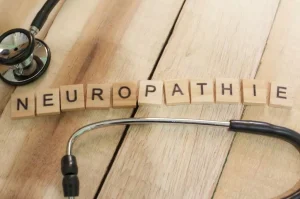
These homes provide a supportive community and a strong support network to help individuals safely navigate the tough spots and triggers they may encounter. Though recovery rates vary, longer stints in treatment facilities are generally linked with decreased relapse risks. Remember, your journey and comfort should be the guiding factor in determining the length of your stay. NCBI research consistently shows higher sobriety rates among those who choose sober living homes, especially for longer stays. Since most states don’t regulate sober living homes like they do with treatment facilities, it’s important to do your research.
Sober Living House Rent

Level IV employs an organizational hierarchy of credentialed staff and adds on clinical and administrative supervision. Level IV services include in-house clinical services and programming and life skill development. Level IV recovery homes tend to have a more institutional building framework. Level III homes employ administrative staffers, such as a facility manager and certified staff of case managers, and maintain an organizational hierarchy.
- They may also assist residents in finding employment, allowing them to defer payments.
- This means that if a resident breaks the rules, they can be evicted that very day with no recourse.
- Sober living homes can be beneficial for those who are transitioning from inpatient treatment, but they may be too far ahead in the process for many who are looking to start their recovery journey.
- Resident stays are shorter at this level but with the most intense format.
Sober Living Home & Oxford House Rules
It can build self-esteem, teach residents about finances, and become responsible members of the community. At this level, it is often mandatory for residents to participate in community meetings, house meetings, mutual support groups, buddy systems, and outside clinical appointments. Individuals in recovery should feel like they are sober house easing back into everyday life and can start returning to their daily tasks and responsibilities. However, although these residences are less restrictive than inpatient facilities, they still have rules that residents must abide by. Consider asking folks at a recovery meeting or touching base with any sober friends you may have.
Types of Sober Living Homes

We encourage everyone to reinforce positive lifestyle changes through adventure, support, and peer feedback. While completing a substance abuse rehab program before moving in may not be required, it can help individuals to stay sober. However, if residents are willing to remain sober, follow all house rules, and guarantee medical stability, they should feel free to apply. Sober housing is where most recovering addicts go after completing an inpatient or drug rehabilitation program. This means that detoxification, therapy and other professional forms of treatment have already been administered and these people are on their final steps of the recovery process.
If you have already gone through rehab, but you’re not quite ready to live independently, this type of facility may be an excellent fit for you. According to a research study conducted by NCBI, the average stay at a sober living home is between 166 days to 254 days.However, the length of time you stay in a sober living home depends on many factors. These can include your recovery goals, your progress in recovery, the state of your support system, and your financial situation.
What Does Sober Housing Provide?
- A sober living house is a transitional residence that offers support, encouragement, and resources to assist you in navigating the challenges you may face in the initial phases of addiction recovery.
- Aside from expectations connected to recovery, sober living homes have rules that apply to any shared residential space.
- However, you might be wondering what happens now that the detox is over, you’ve completed your stay at an addiction treatment center, and it is time to go home.
- Many people enter sober living houses after intensive inpatient or outpatient treatment.
If you or your loved one needs to go to a sober living facility, contact your local healthcare professional or medical professional for a referral. Sober living homes are typically located in secure, serene neighborhoods to provide a https://ecosoberhouse.com/ stable housing environment. With little structure and monitoring, someone new in their recovery may want to a higher-level sober living home. By Julia Childs Heyl, MSWJulia Childs Heyl, MSW, is a clinical social worker and writer.
Common Sober Living House Rules and Regulations
PHPs are more intensive than traditional outpatient treatment but less intensive than inpatient or residential treatment. Halfway houses, on the other hand, are typically more structured and may be mandated as part of a court-ordered treatment program. Halfway houses are often reserved for those who have completed a residential treatment program and require additional support and supervision as they transition back into the community. Residents in halfway houses may be subject to more stringent rules, including mandatory curfews and drug testing. For those who don’t suffer from any type of substance abuse or alcohol issues, it is no surprise that the term “sober housing” is unfamiliar.
Residents will also be expected to share household chores and responsibilities. Sober living homes do not provide addiction treatment, and these communities are not a substitute for rehab. The term sober living generally refers to living a drug-free and alcohol-free lifestyle. The term is primarily applied to those in recovery from drug addiction or alcoholism. The rules and guidelines of the sober living house are intended to encourage sober behavior and prevent relapse, and residents are typically required to maintain their sobriety while living in the house.
You can also schedule meetings or counseling sessions around your work hours. To the best of our knowledge, all content is accurate as of the date posted, though offers contained herein may no longer be available. The opinions expressed are the author’s alone and have not been provided, approved or otherwise endorsed by our advertisers.

